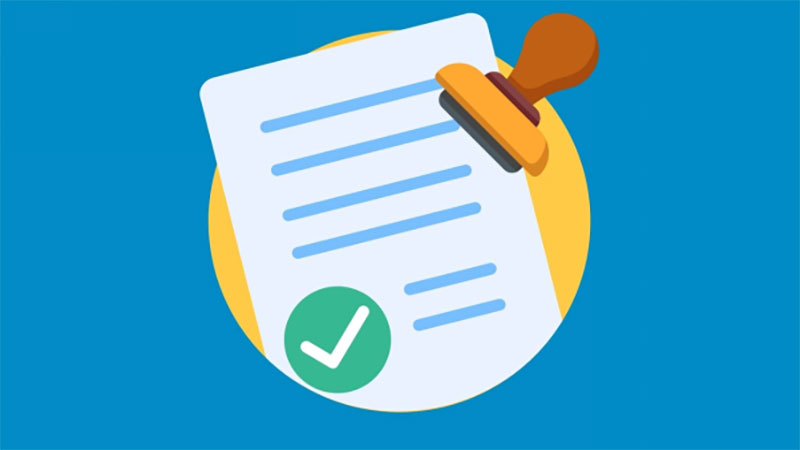How Long Does it Take to Get a Mortgage Pre-Approval
Feb 25, 2024 By Susan Kelly
Are you interested in taking the leap and buying a home? One of the first steps is to get pre-approved for a mortgage. Knowing how long it takes to get that pre-approval can help plan and budget for this major life purchase.
In this blog post, we'll discuss the answer to the question, "How long does it take to get a mortgage pre-approval?" We will cover what affects your approval process timing and why being prepared beforehand can make all the difference when beginning—and submitting—your loan application.
What Is a Mortgage Pre-Approval

A mortgage pre-approval is an initial evaluation of your creditworthiness performed by a lender. The lender reviews your income, debts, and assets to determine how much they will lend.
While it does not guarantee you will qualify for a loan, it is an important first step in home-buying as it estimates what you can afford and your interest rate. This approval allows buyers to understand their options before making offers on properties.
What Information Is On a Mortgage Pre-Approval Letter

Getting pre-approved for a mortgage is an important first step when purchasing a home. A mortgage pre-approval letter is a document that confirms your ability to obtain financing and outlines the parameters of the loan you are approved for.
The pre-approval letter will include the amount of money you are approved to borrow and details about the type of loan, estimated interest rate, and estimated monthly payments.
It will also include other key information, such as how long your approval is valid, closing costs, and any restrictions or conditions that must be satisfied before closing on a purchase.
Mortgage Pre-Approval Vs. Pre-Qualification
Mortgage Pre-Approval and pre-qualification are two different steps in the home-buying process. Pre-qualification is a simple estimate of how much home you can afford given your current financial situation. A mortgage pre-approval involves more detailed information such as employment verification, income, credit history, and other factors.
It typically takes a few days to complete the pre-approval process, and sellers often require it before they accept an offer.
When getting a mortgage pre-approval, lenders review your financial information in detail to determine what loan amount they will approve for you. With a loan amount approved before shopping for homes, you'll know exactly how much you qualify for and what you can afford.
Getting a mortgage pre-approval is essential in today's competitive housing market and
gives buyers an advantage over those who have yet to take this step. It also helps speed up the buying process since lenders can quickly approve your loan once you've found your desired house.
A mortgage pre-approval letter will assure sellers that they are dealing with serious buyers who have been vetted by a lender and are qualified to purchase their home.
Getting pre-qualified for a mortgage is the first step in finding out how much house you can afford while getting pre-approved is the more detailed step required to secure financing. Pre-qualification gives you an estimate of your home-buying budget, while pre-approval is a commitment from the lender that you're ready to buy and are willing to provide financing.
Factors Affecting Mortgage Preapproval
When applying for a mortgage pre-approval, lenders consider several factors to determine if you're a good candidate for the loan. The amount of time it takes to be approved can vary widely and depends upon many factors.
Debt-to-income Ratio
Your debt-to-income ratio (DTI) measures how much your income goes toward monthly paying off debts. Generally, lenders prefer that this number stay below 43%. A higher DTI may make getting pre-approved or even approved more difficult.
Down Payment
The amount of money you put down as a down payment is also important when seeking pre-approval. This importance is because the more money you can put down, the less of a loan amount you will need to borrow, and therefore, the lower your overall loan risk is in the eyes of lenders.
Credit
Your credit score plays a major role in how quickly you can get pre-approval for a mortgage. The higher your score, the better your chance of being approved faster than someone with a lower score. It's important to ensure that all of your accounts are up to date and that any past-due payments are taken care of before applying for pre-approval.
Income
Lenders also take into account your current income when making their decision on whether or not to approve your pre-approval. Proof of income, such as pay stubs or tax returns, is also needed when submitting your application and can help speed up the process.
Employment History
Your employment history is also taken into consideration when determining pre-approval. Lenders will look at how long you have been employed at your current job and what type of employment it is (full-time, part-time, etc.). A longer history with consistent work can help bolster approval chances.
How To Get Pre-Approved For a Mortgage
Step 1: Gather Essential Documents
The first step in a mortgage application is gathering the necessary documents. This documentation includes your income, debts, assets, and credit history. Ensure you have all of these available before beginning to pre-appro your essential documents.
These essential documents include your W-2 or tax returns, bank statements, pay stubs, and any other financial documentation that you may need. Having all of this information up front will help speed up the loan application process.
Step 2: Contact a Lender
Once you have all the necessary documents, it's time to contact a lender. The best way to find a suitable mortgage lender is through referrals from friends and family members who have gone through the home-buying process.
You can search for lenders online or contact your local bank or credit union. Once you have identified a few potential lenders, compare offers and interest rates before deciding on one.
Step 3: Submit Your Application
Before you submit your application, ensure all your paperwork is accurate and up-to-date. This insurance includes double-checking your personal information, such as name, address, Social Security number, and date of birth. Once everything is in order, submit your application to the lender.
Step 4: Get Pre-Approved
Once you have submitted your application, your lender will review it and determine whether or not you are pre-approved for a mortgage. Depending on the complexity of your financial situation, this process can take anywhere from one day to several weeks. During this time, the lender will ask questions about your creditworthiness and may request additional documents if necessary.
How Long Does It Take To Get a Mortgage Pre-approval
The length of time it takes to acquire a mortgage pre-approval can change depending on how promptly you give the lender the required paperwork. Pre-approval letters typically take 7 to 10 days to arrive. On occasion, though, things might go more quickly if all the necessary paperwork is sent in promptly.
FAQs
How long does pre-approval usually take?
Generally speaking, most lenders can provide preliminary pre-approvals within two weeks.
Can I be denied a mortgage after being pre-approved?
Yes, you can be denied a mortgage after being pre-approved. Although a pre-approval indicates that the lender will likely approve your loan for a certain amount and interest rate, there is still no guarantee that you will ultimately get the loan.
Does pre-approval mean you get the mortgage?
No, pre-approval does not guarantee that you will get the mortgage. Ultimately, it is up to the lender's discretion and other factors to determine your eligibility for a loan.
Conclusion
Getting a mortgage pre-approval is an involved process, but it can be completed relatively quickly with the necessary information. Knowing what goes into a pre-approval letter and how it differs from pre-qualification is essential to making the process as smooth as possible. It's also important to consider the factors that may affect the time it takes to get a pre-approval, such as your current credit score or income level. With help from a trusted mortgage lender, you should be able to get your mortgage pre-approval in just one to two weeks.

Jobs in Nonprofit Accounting
Nov 22, 2023
Accountant the role is just as crucial in the nonprofit sector as it is in the for-profit sector, and the tasks will be identical to those of a professional accountant. Treasurer. Vacancies for full-time financial officers tend to arise at larger nonprofits that attract sufficient funding to justify the position.

What To Do About Your Student Loans in 5 Easy Steps
Oct 11, 2023
Do you feel completely paralyzed by the weight of your student loans? The good news is that you have a company: More than $1.6 trillion has been borrowed for education in the United States. That's just slightly smaller than the total national mortgage debt. Student debt makes it more difficult for recent graduates to enter the housing market.

Get To Know Which States Tax Social Security Benefits
Feb 27, 2024
Moving to a lower-tax state or country can help retirees stretch their money further. Social Security and pensions are exempt from taxation in these states.

Average Rates For Car Loans Based On Credit Score
Feb 05, 2024
Average car loan interest rates vary by credit score, with higher scores generally receiving lower interest rates. For example, a person with a credit score of 720 or higher may receive an interest rate of 3.25% to 4.00%, while a person with a score of 680 to 719 may receive an interest rate of 4.25% to 5.00%. A person with a lower credit score may receive an interest rate of 6.00% or higher.

The Top Gold Exchange-Traded Funds to Hedge Volatility
Oct 16, 2023
There is more than one way to acquire exposure to gold, the most direct of which is the purchase of gold bullion. Other means, such as ownership of shares in public mining firms, are more indirect. Exchange-traded funds (ETFs) that include gold as their underlying asset are the most effective way for ordinary investors to get a piece of the action because of the low transaction costs. While some funds directly invest in the metal itself, others instead manage a portfolio of equities tied to the gold industry.

Offer in Compromise: Get to know How to Settle Your Tax Debt?
Oct 09, 2023
You can negotiate a reduced tax liability settlement using an Offer in Compromise. It may be a viable alternative if you cannot fully pay your tax bill.

Top Consumer Goods Stocks to Consider for Your 2024 Investment Portfolio
Sep 10, 2024
consumer goods stocks, 2024 stock market, investing in consumer goods

How Does Group Life Insurance Work?
Nov 29, 2023
Group life insurance, or group term insurance, is a type of term life insurance that protects an entire group, such as an employer's staff. Group-term life insurance is a common employee benefit offered by many companies. Please find out how employers provide this form of life insurance and how it stacks up against other policies

How Does Being Evicted Affect Your Credit?
Dec 29, 2023
When a credit bureau hears about an eviction, it can appear on your credit report for up to seven years. This can hurt your credit score, making it harder for you to rent a new place or get credit in the future. To keep your credit score from taking a hit, working with your landlord to solve any problems before you have to move out is essential.

Can You Deduct Margin Interest on Your Taxes
Feb 20, 2024
The Internal Revenue Service permits taxpayers to deduct certain costs associated with investments if those costs are directly tied to generating taxable income from investments. Let's look at some of the most frequent deductible investment costs and how they might reduce your taxable income since increasing the amount of tax deductions you claim can decrease the amount of money you owe in taxes

A Step-by-Step On How To Find Your Social Security Number
Dec 12, 2023
Looking for your social security number but need help figuring out where to start? Here are the steps you can take to locate your number and safeguard yourself against potential fraud quickly

All You Need to Know about Subprime Mortgage
Oct 11, 2023
Customers with weak credit histories may apply for subprime mortgages, which carry high-interest rates. These loans allow people with bad credit to purchase houses, but they come with a high degree of risk